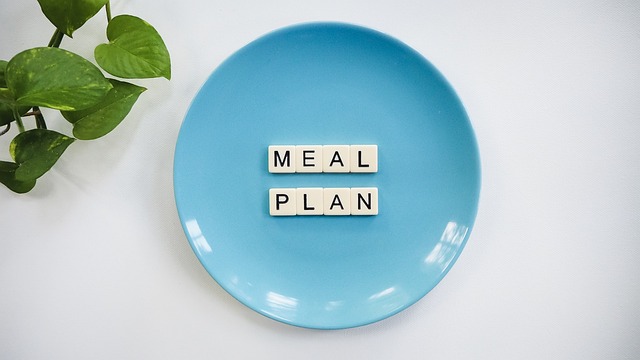
Many people turn to the ketogenic diet to lose weight quickly and efficiently. However, some may find that they are not seeing the desired results. Despite following the strict guidelines of the diet, they may still be struggling to shed pounds. This can be frustrating and discouraging, but there are several reasons why this may be happening.
One possible reason why someone may not be losing weight on the keto diet is that they are consuming too many calories. While the diet focuses on high-fat, low-carb foods, it is still important to maintain a caloric deficit in order to lose weight. Eating too many calories, even if they come from keto-friendly foods, can still lead to weight gain or a plateau in weight loss. Additionally, some people may be consuming too much protein, which can also hinder weight loss on the keto diet.
Table of Contents
Understanding the Keto Diet
Macronutrient Ratios
The keto diet is a high-fat, low-carbohydrate diet that aims to put the body in a state of ketosis. In order to achieve this state, it is important to maintain specific macronutrient ratios. The typical macronutrient ratio for a keto diet is 70-80% fat, 20-25% protein, and 5-10% carbohydrates.
It is important to note that not all fats are created equal. The keto diet focuses on consuming healthy fats such as avocados, nuts, and olive oil. Protein sources should also be carefully chosen, with an emphasis on lean proteins such as chicken, fish, and tofu.
Ketosis Explained
Ketosis is a metabolic state that occurs when the body does not have enough glucose for energy and instead turns to burning fat for fuel. This is achieved through limiting carbohydrate intake, which forces the body to break down stored fat for energy.
When the body enters ketosis, it produces ketones which can be used as an alternative energy source. This process can lead to weight loss, as the body is burning fat for energy instead of carbohydrates.
It is important to note that while the keto diet can be effective for weight loss, it may not be suitable for everyone. It is always recommended to consult with a healthcare professional before starting any new diet or exercise program.
Common Challenges in Weight Loss
Caloric Intake vs. Expenditure
One common challenge in weight loss is not accurately tracking caloric intake versus expenditure. While the keto diet may lead to weight loss through its low-carb, high-fat approach, it still requires a caloric deficit to be effective. It’s important to track both food intake and physical activity to ensure that the body is in a caloric deficit.
Hidden Carbohydrates
Another challenge in weight loss on the keto diet is hidden carbohydrates. Some foods, such as certain vegetables, nuts, and dairy products, contain small amounts of carbohydrates that can add up throughout the day. It’s important to track all food intake, including small snacks and condiments, to ensure that carbohydrate intake is within the recommended range for the keto diet.
Adaptation Period
Lastly, many individuals may experience a challenging adaptation period when starting the keto diet. This period, commonly referred to as the “keto flu,” can cause symptoms such as headaches, fatigue, and nausea. It’s important to stay hydrated and ensure adequate intake of electrolytes during this period to help alleviate symptoms.
Overall, weight loss on the keto diet requires careful tracking of caloric intake, awareness of hidden carbohydrates, and patience during the adaptation period.
Evaluating Progress
Scale Fluctuations
One of the most common ways people measure their progress on the keto diet is by weighing themselves on a scale. However, it’s important to keep in mind that weight can fluctuate for a variety of reasons, including water retention, hormonal changes, and even the time of day. Therefore, it’s recommended to weigh yourself consistently at the same time of day and under the same conditions, such as after waking up and using the bathroom.
It’s also important to not get discouraged by small fluctuations in weight. Instead, focus on the overall trend over time. If weight loss has plateaued or slowed down, it may be helpful to reassess the diet and make adjustments, such as reducing calorie intake or increasing physical activity.
Non-Scale Victories
While the scale can be a useful tool for tracking progress, it’s not the only way to measure success on the keto diet. Non-scale victories, such as improved energy levels, better sleep, and clothes fitting better, can also be a sign of progress. It’s important to celebrate these victories and use them as motivation to continue on the keto journey.
In addition, taking measurements of the body, such as waist circumference or body fat percentage, can provide a more accurate picture of progress than relying solely on the scale. Tracking these measurements over time can also help identify areas of improvement and keep motivation high.
Overall, evaluating progress on the keto diet requires a holistic approach that goes beyond just the number on the scale. By focusing on both scale fluctuations and non-scale victories, individuals can get a more complete picture of their progress and make informed decisions about their diet and lifestyle.
Nutritional Considerations
Micronutrient Deficiency
One possible reason for not losing weight on the keto diet could be a deficiency in micronutrients. The keto diet is a high-fat, low-carbohydrate diet that restricts many nutrient-dense foods such as fruits, vegetables, and whole grains. These foods are important sources of vitamins, minerals, and other micronutrients that are essential for overall health and weight loss.
To ensure adequate micronutrient intake on the keto diet, it is important to incorporate a variety of nutrient-dense foods such as leafy greens, nuts, seeds, and low-carbohydrate vegetables. Additionally, a multivitamin supplement may be beneficial in preventing micronutrient deficiencies.
Hydration and Electrolytes
Another potential reason for not losing weight on the keto diet could be dehydration and electrolyte imbalances. The keto diet can cause the body to excrete more water and electrolytes, which can lead to dehydration and electrolyte imbalances.
To prevent dehydration and electrolyte imbalances, it is important to drink plenty of water and consume adequate amounts of sodium, potassium, and magnesium. Foods such as avocados, nuts, and leafy greens are good sources of these electrolytes. Additionally, adding a pinch of salt to meals or drinking electrolyte-rich beverages such as bone broth or sports drinks can help maintain electrolyte balance.
Overall, ensuring adequate micronutrient intake and electrolyte balance is important for weight loss success on the keto diet.
Lifestyle Factors
Physical Activity Level
Physical activity is an essential component of a healthy lifestyle, including weight management. Regular exercise can help increase muscle mass, burn calories, and boost metabolism. On the other hand, a sedentary lifestyle can lead to weight gain and increase the risk of chronic diseases.
For those following the keto diet, incorporating physical activity into their daily routine can help promote weight loss and improve overall health. This can include activities such as strength training, cardio, and low-impact exercises like yoga or Pilates.
Sleep Quality
Sleep is essential for overall health and well-being. Poor sleep quality has been linked to weight gain and obesity. Lack of sleep can disrupt hormonal balance, increase appetite, and reduce energy levels, making it harder to stick to a healthy diet and exercise routine.
For those on the keto diet, getting enough quality sleep is crucial for weight loss and maintaining optimal health. This can include practicing good sleep hygiene, such as avoiding caffeine and electronics before bed, establishing a regular sleep schedule, and creating a relaxing sleep environment.
Stress Management
Stress is a common factor that can hinder weight loss progress. Chronic stress can disrupt hormonal balance, increase cortisol levels, and lead to overeating or emotional eating.
For those on the keto diet, managing stress levels is essential for weight loss success. This can include practicing stress-reducing techniques such as meditation, yoga, or deep breathing exercises. Additionally, incorporating self-care activities like taking a warm bath, reading a book, or spending time in nature can help reduce stress levels and promote overall well-being.
Medical Conditions and Medications
Hormonal Imbalances
Hormonal imbalances can affect weight loss on the keto diet. Hormones such as insulin, cortisol, and thyroid hormones play a crucial role in regulating metabolism and weight loss.
Insulin resistance, which can occur in conditions such as polycystic ovary syndrome (PCOS), can make it difficult to lose weight on the keto diet. In this case, it may be helpful to work with a healthcare provider to manage insulin levels and optimize weight loss.
Cortisol, the stress hormone, can also impact weight loss efforts. High levels of cortisol can lead to increased appetite and fat storage, making it harder to lose weight. Managing stress through techniques such as meditation and exercise may help in this case.
Thyroid hormone imbalances, such as hypothyroidism, can also affect weight loss on the keto diet. In this case, working with a healthcare provider to optimize thyroid hormone levels may be necessary.
Medication Interactions
Certain medications can also impact weight loss on the keto diet. For example, medications such as corticosteroids and antidepressants can cause weight gain or make it harder to lose weight.
It is important to work with a healthcare provider to manage medication side effects and optimize weight loss efforts. In some cases, alternative medications or dosage adjustments may be necessary.
In summary, hormonal imbalances and medication interactions can affect weight loss on the keto diet. Working with a healthcare provider to manage these factors may be necessary for optimal weight loss results.
Personalizing Your Keto Approach
Tailoring Macronutrients
One reason why someone may not be losing weight on the keto diet is that they are not consuming the correct macronutrient ratios. While the standard keto diet recommends a macronutrient ratio of 70% fat, 20% protein, and 10% carbohydrates, this may not work for everyone.
Some individuals may need to increase their protein intake to maintain muscle mass, while others may need to consume fewer carbohydrates to reach ketosis. It is important to experiment with different macronutrient ratios and track progress to determine what works best for each individual.
Food Quality and Sensitivities
Another factor to consider when personalizing a keto approach is food quality and sensitivities. While the keto diet allows for high-fat and low-carbohydrate foods, it is important to choose nutrient-dense options.
Some individuals may also have sensitivities to certain foods, such as dairy or nuts, which can hinder weight loss. It is important to pay attention to how the body reacts to different foods and adjust the diet accordingly.
In summary, personalizing a keto approach involves tailoring macronutrient ratios and choosing nutrient-dense foods while also considering any food sensitivities. By experimenting with different approaches and tracking progress, individuals can find the best approach for their unique needs.
When to Seek Professional Help
If an individual has been following the keto diet for an extended period and has not seen any weight loss, it may be time to seek professional help.
A registered dietitian or nutritionist can help assess the individual’s diet and provide personalized recommendations. They can also help identify any nutrient deficiencies that may be hindering weight loss.
It is also important to consult a healthcare provider if an individual experiences any adverse effects while on the keto diet, such as constipation, headaches, or fatigue. These symptoms may indicate a need for adjustments to the diet or medical attention.
Overall, seeking professional help can provide valuable guidance and support for individuals struggling to lose weight on the keto diet.
Frequently Asked Questions
What could be the reason for a weight loss plateau on a keto diet?
A weight loss plateau on a keto diet can happen for several reasons. One possibility is that the person is consuming too many calories, even if they are from keto-friendly foods. Another reason could be that the person is not in a calorie deficit, meaning they are not burning more calories than they are consuming. Additionally, stress and lack of sleep can also play a role in weight loss plateaus.
How does exercise influence weight loss while on a ketogenic diet?
Exercise can be beneficial for weight loss while on a ketogenic diet. It can help increase calorie burn and improve overall health. However, it’s important to note that exercise alone may not result in significant weight loss. A combination of exercise and a calorie deficit is typically necessary for weight loss on a keto diet.
Are there common mistakes that prevent weight loss on keto?
Yes, there are common mistakes that can prevent weight loss on a keto diet. These include consuming too many calories, not tracking food intake, not drinking enough water, and consuming too many processed or high-carb foods. It’s important to follow a balanced and healthy keto diet to see weight loss results.
How long does it typically take to see weight loss results on a keto diet?
The amount of time it takes to see weight loss results on a keto diet can vary from person to person. Some people may see results within a few weeks, while others may take several months. It’s important to remember that weight loss is not always linear and can fluctuate based on various factors.
Can certain foods on a keto diet impede weight loss progress?
Yes, certain foods on a keto diet can impede weight loss progress. These include processed and high-carb foods, as well as foods that are high in calories. It’s important to focus on whole, nutrient-dense foods to support weight loss on a keto diet.
What role does ketosis play in weight loss on a ketogenic diet?
Ketosis is a metabolic state that occurs when the body burns fat for fuel instead of carbohydrates. This can lead to weight loss on a ketogenic diet, as the body is using stored fat for energy. However, it’s important to note that being in ketosis alone does not guarantee weight loss. A calorie deficit is still necessary for weight loss on a keto diet.

